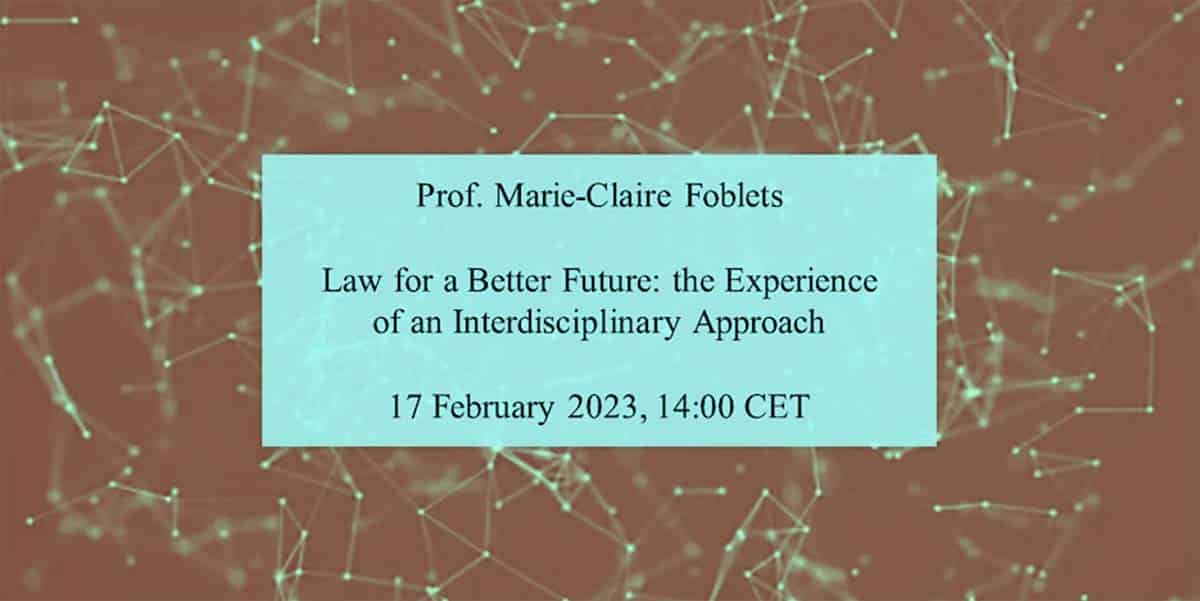Many different conceptions of law exist side by side in multicultural societies—a reality that formal legal systems have ignored for far too long, according to Marie-Claire Foblets. As Director of the Department for Law and Anthropology at (since 2012), she hopes to help change this situation.
Having been born in Belgium and spending most of her youth in that country, Professor Foblets soon became interested in plural societies and the conditions for sustainable peace among diverse groups. She was trained in law at the universities of Antwerp (1977–1979) and Leuven (1979–1982) in Belgium, and also studied Thomist philosophy in parallel with law. Thanks to a study fellowship (1982–1983), she was given the opportunity to pursue further study in philosophy at the Wilhelms-Universität of Münster, in Nordrhein-Westfalen, Germany, and to complete her studies in social and cultural anthropology (1985).
Upon completion of her studies, Professor Foblets was called to the French-speaking section of the Brussels Bar. She spent a decade practising law with a firm that specialized in matters related to migration and minority issues. In the same period, she defended her doctoral thesis in social and cultural anthropology, which was inspired to a large extent by her legal practice.
For more than twenty years, Professor Foblets taught law as well as social and cultural anthropology in the universities of Antwerp and Brussels. Before becoming a member of the Max Planck Society in March 2012, she was professeur ordinaire (full professor) at the Catholic University of Leuven, where she headed the Institute for Migration Law and Legal Anthropology. She has also been a member of various networks of researchers focusing either on the study of the application of Islamic law in Europe or on law and migration in Europe, including the Association française d’anthropologie du droit (AFAD), of which she served as co-president for several years.
In 2001, she was elected to the Royal Flemish Academy of Belgium for Science and the Arts (KVAB). In 2004, she received the Francqui Prize, the most distinguished scientific award in the humanities in Belgium.
At the intersection of Law & Anthropology
Since 2018, Professor Foblets has led a long-term project under the title ‘Cultural and Religious Diversity under State Law across Europe’ (CUREDI). CUREDI is a digital repository of cases—with a focus on case law analysis—that have to do with cultural and religious diversity and that show if, how, and to what extent diversity is granted legal recognition within the domestic legal systems of member states of the EU, UK, and Switzerland.
The CUREDI project is unparalleled in Europe in its effort to identify, document, and offer in-depth analyses of legal reasoning on the manifold issues related to the growing social diversity throughout the EU. The cases show how domestic legal orders are gradually adapting to the reality of increasing cultural and religious diversity, as well as the demands for its recognition. The analyses focus on the arguments used in the rulings to justify the granting or, conversely, the rejection of claims to recognition of traditions, concepts, practices, beliefs, etc. Of particular relevance to the aims of CUREDI are references to empirical evidence, anthropological literature, or expert testimony used in judicial or administrative contexts to render a decision.
